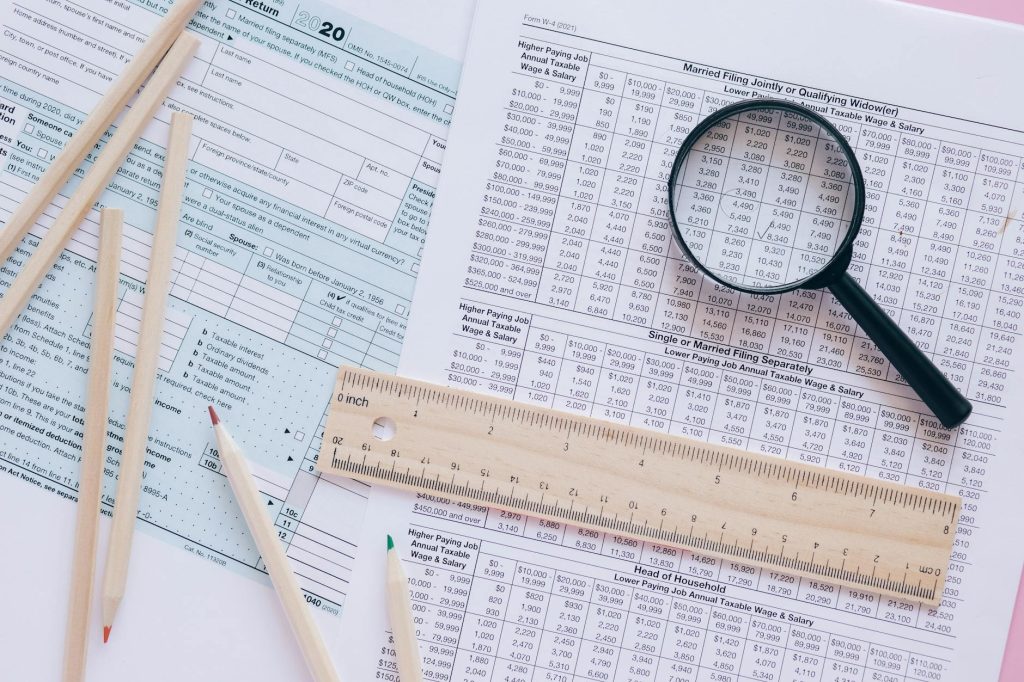
Tax time can be stressful, especially if you’re not sure what counts as taxable income. Many people overlook certain types of income, assuming they’re not required to report them. But the IRS has clear rules, and missing even small amounts can lead to penalties or an unexpected bill. Understanding which types of income are taxable helps you avoid headaches and keeps your finances in good order. Being proactive also means you won’t be caught off guard later. Let’s walk through five types of income people often forget to pay taxes on—so you can stay on the right side of tax law.
1. Side Hustle and Gig Economy Earnings
With the rise of the gig economy, more people are earning extra cash through platforms like Uber, DoorDash, or freelancing sites. Sometimes, these jobs are so casual that people forget they’re actually earning taxable income. It doesn’t matter if you only made a few hundred dollars—any money earned from side gigs must be reported on your tax return.
If you received payments through services like PayPal or Venmo for work you did, that income is still taxable. Even if you don’t get a 1099 form, you’re responsible for reporting all earnings to the IRS. Keeping good records of your side hustle income makes tax filing much easier and helps you avoid unwanted attention from tax authorities.
2. Gambling Winnings
Whether it’s a lucky night at the casino or a big win from a fantasy sports league, gambling winnings are considered taxable income. Many people assume that only large jackpots need to be reported, but that’s not the case. Even small prizes, raffle wins, or lottery payouts must be included on your tax return.
If you receive a W-2G form from the casino or betting site, the IRS already knows about your win. But even without official paperwork, you’re required to report all gambling income. Don’t forget to keep track of your losses as well, since you may be able to deduct them up to the amount of your winnings.
3. Rental Income from Short-Term Rentals
Many homeowners rent out a room or their whole home on platforms like Airbnb or Vrbo. It’s easy to think of this as “extra” money, but rental income is taxable. Even if you only rent out your place for a few days a year, you’re required to report that income.
Some people believe the “14-day rule” means all rental income is tax-free, but that only applies if you rent out your home for fewer than 15 days total in a year. Anything beyond that, and you must include the income on your tax return. Be sure to track not just what you earn but also any related expenses, as you may be able to deduct things like cleaning fees or repairs.
4. Prizes, Awards, and Sweepstakes
Winning a prize feels great, but it can come with a tax bill. Whether you win a new car, a vacation, or a cash prize, the IRS treats the fair market value as taxable income. Even non-cash prizes—like gift cards or electronics—count.
Many organizations will send you a 1099-MISC if the prize is worth more than $600, but it’s your responsibility to report all winnings, regardless of amount. Forgetting to pay taxes on these types of income is a common mistake, but it’s one that the IRS watches closely.
5. Bartering and Non-Cash Exchanges
Bartering—trading goods or services instead of money—can seem like a tax-free way to do business. But the IRS considers the fair market value of goods or services received as taxable income. For example, if you’re a graphic designer who trades a logo for a set of dining chairs, both parties need to report the value of what they received.
This rule applies even if you don’t get any paperwork. If you use a formal bartering exchange, you’ll likely receive a 1099-B form. However, even informal trades between friends or colleagues are considered income. It’s easy to forget about these transactions when filing your taxes, so keep good records and include them as required.
Staying Ahead of Forgotten Taxable Income
Forgetting to pay taxes on certain types of income is more common than you might think. The IRS expects you to report all taxable income, even if you don’t receive a tax form or the amount seems small. Missing these sources can lead to penalties, interest, or even an audit.
Take some time each year to review all your income sources, including side hustles, gambling wins, rental earnings, prizes, and barter deals. Keeping organized records and knowing what counts as taxable income will help you file accurately and avoid surprises. It’s always better to be safe than sorry when it comes to reporting income.
Have you ever been surprised by a type of income you needed to pay taxes on? Share your experience or questions in the comments below!
What to Read Next…
- 5 Ways Missing One Tax Form Can Cost Your Heirs Thousands
- What Tax Preparers Aren’t Warning Pre-Retirees About in 2025
- 9 Tax Deferred Accounts That Cost More in the Long Run
- 6 Tax Breaks That Vanished Before Anyone Noticed
- 6 Tax Moves That Backfire After You Sell a Property
The post 5 Types of Income People Forget to Pay Taxes On appeared first on The Free Financial Advisor.







